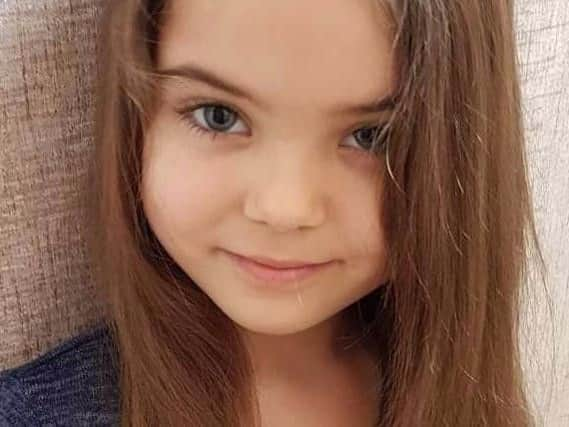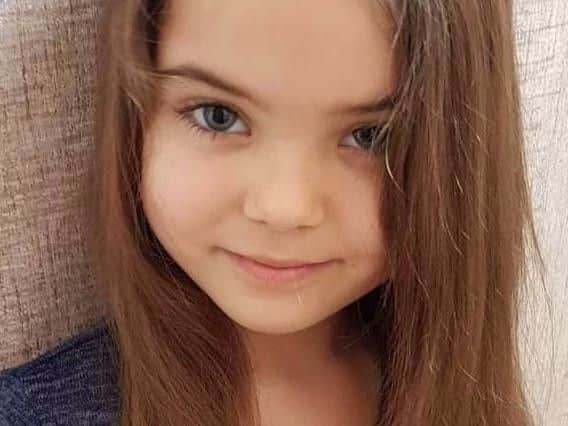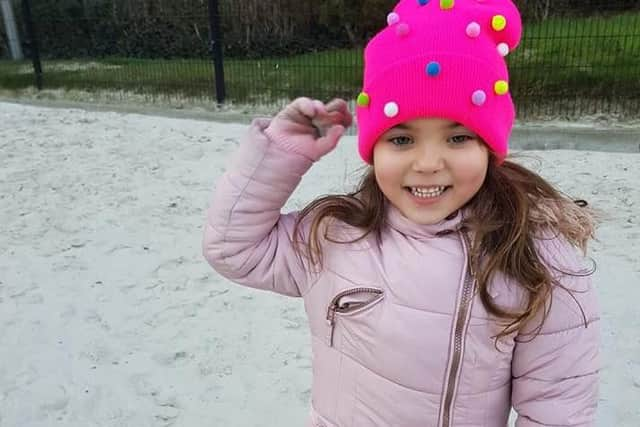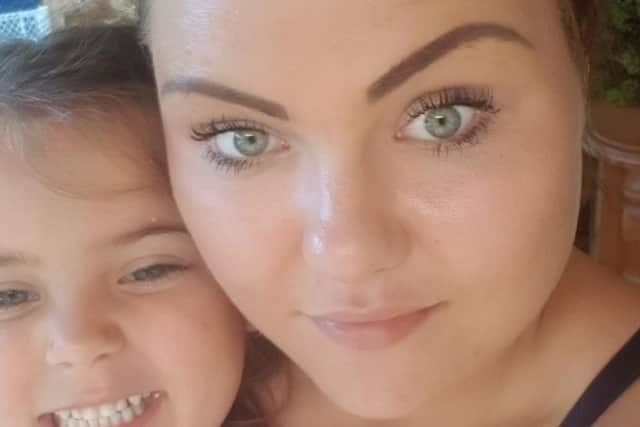A mum is pleading for help to send her daughter with suspected PANDAS to Poland after doctors in Preston believe her uncontrollable tics and hallucinations are caused by Tourette's


A mother living in Preston is pleading for help in sending her poorly daughter to Poland for urgent healthcare.
Beata Makarowska is hoping to raise more than £4,500 to cover living costs and travel to fly her six-year-old daughter Nina to the country to treat what the family believe is PANDAS syndrome.
Advertisement
Hide AdAdvertisement
Hide AdBeata, who moved from Poland five years ago with her husband, Szymon, and two children, says doctors at Royal Preston Hospital have diagnosed Nina with Tourette’s Syndrome, but after seeing a consultant in Wroclaw, she is convinced it is PANDAS.


Beata, 26, explains: “The first symptoms began when Nina was seven months old. She had a seizure, stopped breathing, and the first tics appeared. But she was growing normally, achieving all the developmental milestones.“Then last year, my daughter came back from school a totally different child.
“Nina, also known to us as Ninka, began to jerk uncontrollably, throw out her hands, roll her eyes and throw her head so much that she was hurting herself on the walls. She could not hold a cup with water and her body stiffened every now and then. She started to spit up blood. Her character changed, as she was afraid of everything and fell into attacks of fury and fear. One day she said: ‘I’m not human anymore, what’s happening to me?’“We sought help in hospitals over and over again, but we were being repeatedly sent home without any tests or diagnosis.
“We decided to go to Poland (our home country) and visited many doctors privately, but none of them knew the answer.“So we came back to the UK where Nina kept deteriorating. She started to see everything in red so my husband went to Poland with her again.


Advertisement
Hide AdAdvertisement
Hide Ad“We felt like no help was available to us and we spent all our savings fighting for Nina’s health. “She started having scary hallucinations, where she vomited in terror after telling me she’d seen a bloodied dog, heard male voices and cried that her eyes are falling out.
“We took Nina to a neurologist in Wroclaw in Poland, where, for the first time, she underwent thorough medical diagnostic tests and we were given a diagnosis - suspected PANDAS syndrome. One of the blood tests showed an ongoing Streptococcus infection, which can trigger autoimmune diseases.
“Nina was administered a complex antibiotic therapy, which resulted in her tics and all other symptoms decreasing and enabling her to function normally.
“Unfortunately we had nowhere to live in Poland for a longer term, so we had to go back to our home in England. “As soon as the drugs prescribed in Poland ran out, everything came back and she has tics nearly every second now.


Advertisement
Hide AdAdvertisement
Hide Ad“Doctors in the UK diagnosed Nina with Tourette’s three months ago, but despite all our results from Poland and a successful therapy, they refused to take a different possibility into consideration.
“So now, I want to take my daughter to Krakow to Professor Pituch who has helped many children with this disease. I also want to diagnose my son in whom I have noticed similar symptoms.
“I can not let the illness take my daughter away. She’s only six years old. That’s not how her life should look like.”
Karen Partington, chief executive at Lancashire Teaching Hospitals NHS Foundation Trust, said: “Our priority is to always provide excellent care with compassion for our patients. We have previously worked with Nina’s parents to discuss her care and we encourage them to please contact our Patient Advice and Liaison Service (PALS) on 01772 522972 to resolve any issues.”
To donate to Nina’s treatment visit www.gofundme.com/tykru5-please-help-my-daughter-get-her-life-back
